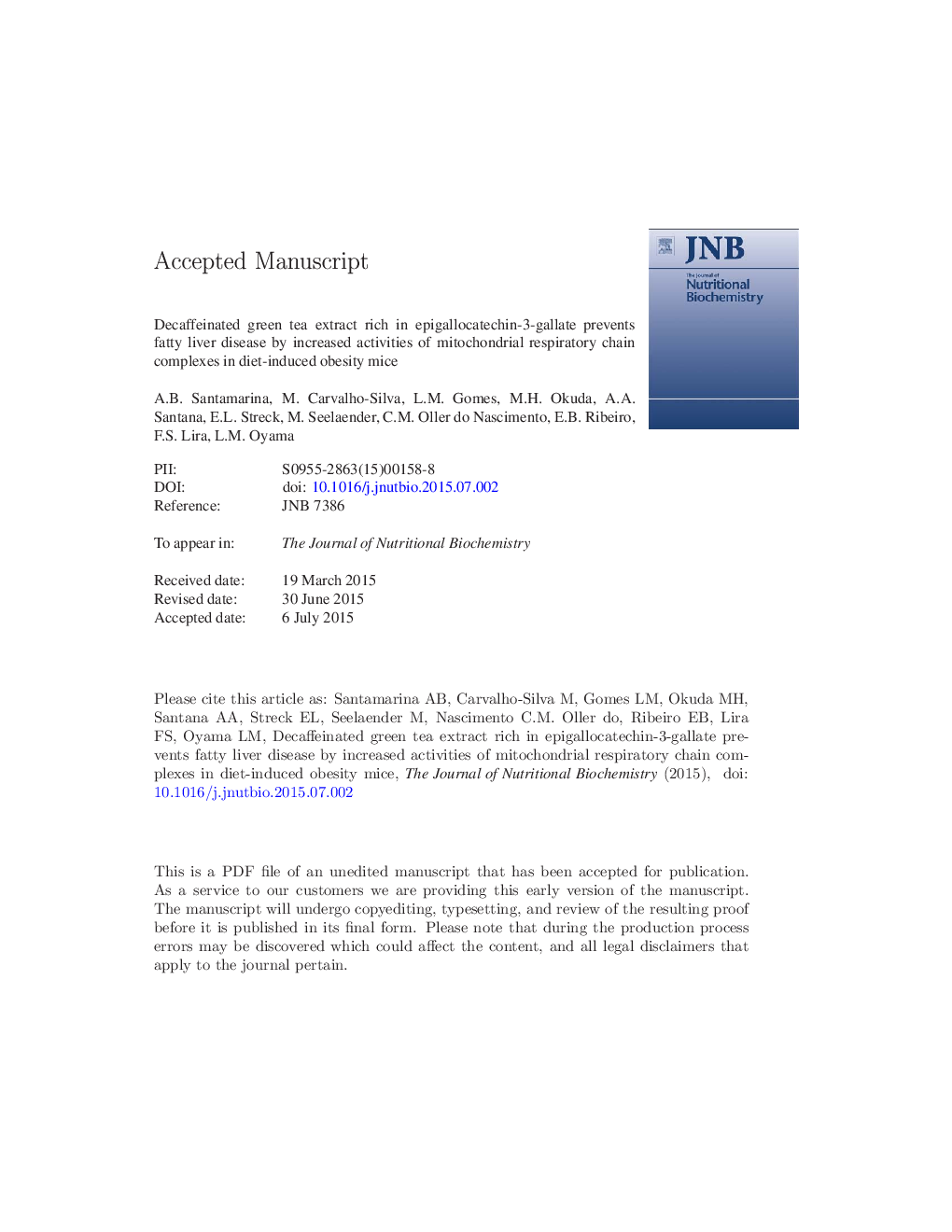| Article ID | Journal | Published Year | Pages | File Type |
|---|---|---|---|---|
| 8336837 | The Journal of Nutritional Biochemistry | 2015 | 43 Pages |
Abstract
Nonalcoholic fatty liver disease has been considered the hepatic manifestation of obesity. It is unclear whether supplementation with green tea extract rich in epigallocatechin-3-gallate (EGCG) influences the activity of mitochondrial respiratory chain complexes and insulin resistance in the liver. EGCG regulated hepatic mitochondrial respiratory chain complexes and was capable of improving lipid metabolism, attenuating insulin resistance in obese mice. Mice were divided into four groups: control diet+water (CW) or EGCG (CE) and hyperlipidic diet+water (HFW) or EGCG (HFE). All animals received water and diets ad libitum for 16 weeks. Placebo groups received water (0.1 ml/day) and EGCG groups (0.1 ml EGCG and 50 mg/kg/day) by gavage. Cytokines concentrations were obtained by ELISA, protein expression through Western blotting and mitochondrial complex enzymatic activity by colorimetric assay of substrate degradation. HFW increased body weight gain, adiposity index, retroperitoneal and mesenteric adipose tissue relative weight, serum glucose, insulin and Homeostasis Model Assessment of Basal Insulin Resistance (HOMA-IR); glucose intolerance was observed in oral glucose tolerance test (OGTT) as well as ectopic fat liver deposition. HFE group decreased body weight gain, retroperitoneal and mesenteric adipose tissue relative weight, HOMA-IR, insulin levels and liver fat accumulation; increased complexes II-III and IV and malate dehydrogenase activities and improvement in glucose uptake in OGTT and insulin sensitivity by increased protein expression of total AKT, IRα and IRS1. We did not find alterations in inflammatory parameters analyzed. EGCG was able to prevent obesity stimulating the mitochondrial complex chain, increasing energy expenditure, particularly from the oxidation of lipid substrates, thereby contributing to the prevention of hepatic steatosis and improved insulin sensitivity.
Related Topics
Life Sciences
Biochemistry, Genetics and Molecular Biology
Biochemistry
Authors
Aline B. Santamarina, Milena Carvalho-Silva, Lara M. Gomes, Marcos H. Okuda, Aline A. Santana, Emilio L. Streck, Marilia Seelaender, Claudia M. Oller do Nascimento, Eliane B. Ribeiro, Fábio S. Lira, Lila Missae Oyama,
